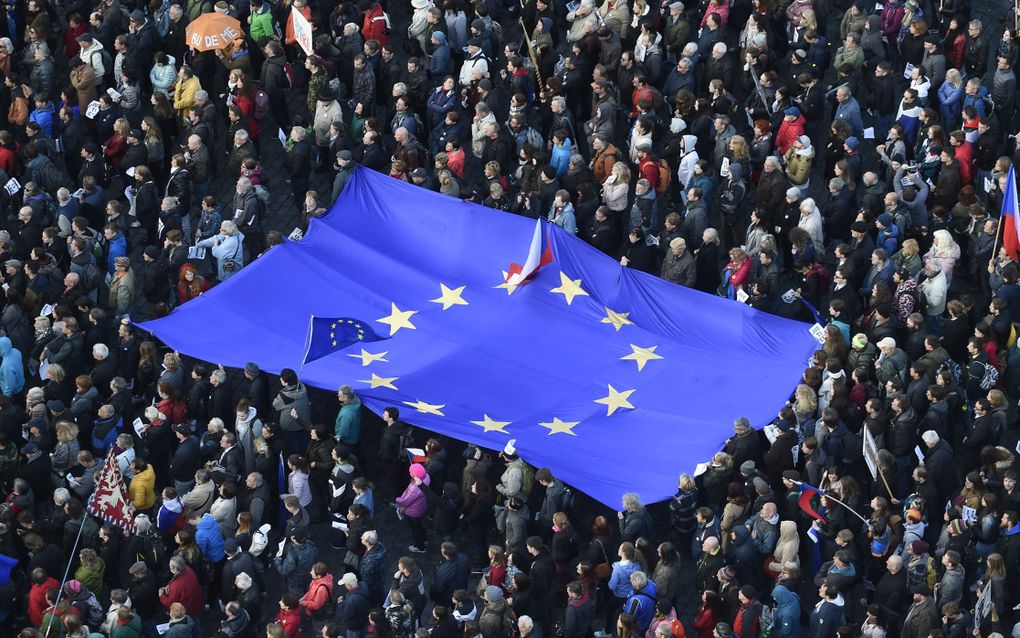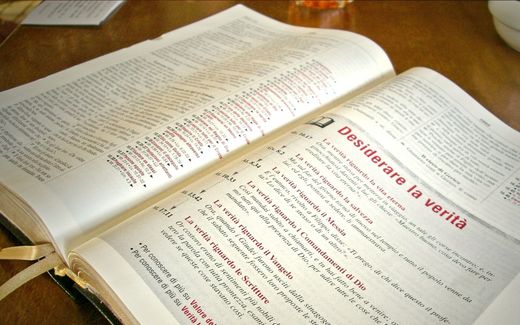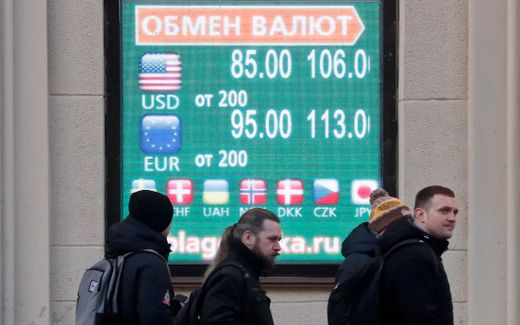Weekly column: Europe keeps having difficulties speaking with its citizens
08-07-2022
Christian Life
Marco Gombacci, CNE.news

Photo AFP, Michal Cizek
Christian Life
The first time I heard about the idea of organising a conference on the future of Europe, I began to think that someone probably understood that something was not working at the EU level.
The Treaty of Lisbon, approved in 2009, has shown all its limits. The structure of the European Union is so complex that even for specialists, sometimes it is difficult to understand how the EU works (imagine for normal citizens…).
"The Conference on the Future of Europe is a unique and timely opportunity for European citizens to debate Europe's challenges and priorities. No matter where you are from or what you do, this is the place to think about what future you want for the European Union."
This was the text used by the organisers to explain what the conference was about. Basically, it was an invitation to give input and ideas to explain what kind of Europe you wanted. European citizens – via an online platform – could apply to participate. European, national, regional and local authorities, as well as civil society and other organisations, were also given the possibility to contribute.
Marco Gombacci was born in 1985 in Trieste, Italy.

He works as EU and foreign affairs analyst. He reported about the Mosul offensive (Iraq), the battle to reconquer Raqqa, from Deir Ezzor (Syria) and Nagorno Karabakh (during the conflict between Armenia and Azerbaigian). He also reported from Ukraine.
He authored the book “Kurdistan. Utopia di un popolo tradito” (ed. Salerno, 2019).
Opinions and articles have been published by Wall Street Journal, Bloomberg, The Daily Express, TgCom45, TG5, Rai1, RaiNews 24, TRECE TV, FRANCE24, La Libre, Le Temps, and many others.
It was supported by the three EU institutions, the support of the French government, which held the rotating presidency of the European Council at the time, and everything looked set in the right way for an effective discussion.
How did it go, you may ask?
Well, not as expected.
It represented yet another missed opportunity, and, despite the unfortunate period between the pandemic and the war in Ukraine, the participation of only 674,357 citizens compared to the 446 million inhabitants of the EU countries is a fact that leaves no room for interpretation.
Even more, perplexity is raised by the forty-nine proposals approved by the conference's plenary session in which the ideas of those who imagine a European Union different from the current one do not find space. Some points summarise a vision of the future of Europe that is not only questionable but which hardly represents the sentiment of the majority of European citizens.
There is no reference to our Christian roots on the fifty-six pages of the final document. Not only the words "Christianity", "Christian", or "Christians" are not present in the whole document, but even the word "religion" is missing. A sign of a totally secularised vision of the future of Europe.
One of the biggest challenges in this Europe is the birth rate. This theme is dealt with briefly in proposal number 15, "demographic transition", but the terms "child" or "children" are never used.
The text does not mention 'family' but 'families' in the plural, a term that occurs seven times. On the contrary, 'gender' is used fourteen times. Similarly, the words' mom' or 'mother' and 'dad' or 'father' are not used once.
Which kind of Europe do we want if we are scared to speak out in favour of family, demography, birth rate and overall to include the Christian roots in the document on the future of our continent?
What kind of Europe do we want if, instead of tackling the big challenges we face, we prefer to discuss different topics to avoid controversial debates?
The Conference of Europe was the perfect occasion to deeply discuss who we are, where we come from, and where we want to go.
Instead, it has been the occasion to discuss important things, as well as technicalities and ideologies.
For example, on the environment, it looks to go more in the direction of the Friday for Future activists instead of a responsible safeguard of the environment which has to consider the needs of the industrial activities.
On the balance between rights and duties, the word 'rights' is used thirty-nine times. In contrast, 'right' is used thirty-three times, and 'duty' is not used, testifying to a European Union biased in favour of rights that do not remember the duties of both its citizens and those who come from outside the European borders.
Despite the good intentions of the organisers and the ability to put forward this initiative during a difficult time, the Conference of Europe was not what the EU needed. It showed once again a difficulty in speaking with its citizens, the inability to recognise the Christian roots and to tackle the real and concrete problems we are facing and will face.
Related Articles





